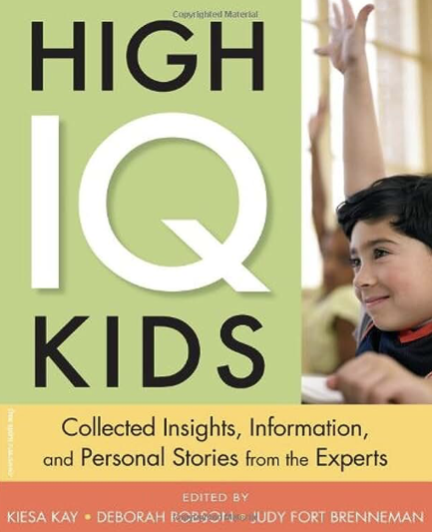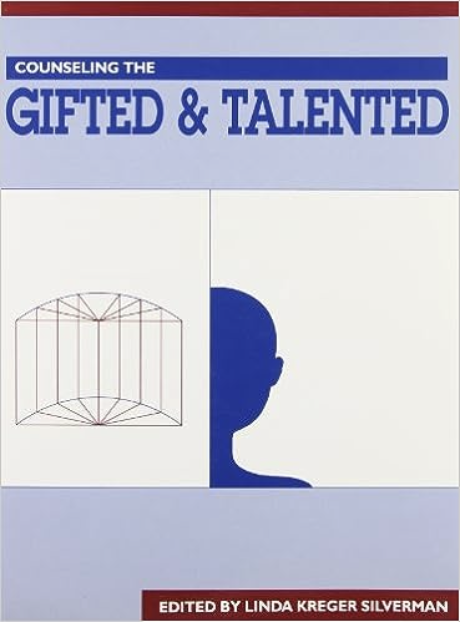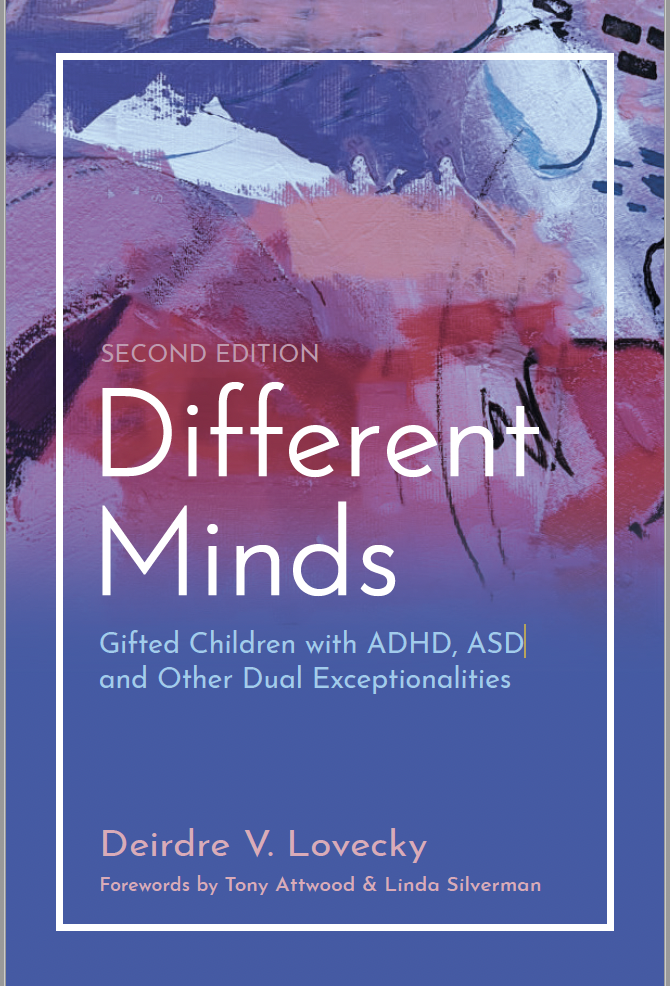Books & Articles
Featured Publications
Young gifted children as natural philosophers

Lovecky, D. V. (2007). Young gifted children as natural philosophers. In K. Kay, D. Robson, & J. F. Brenneman. (Eds.). High IQ Kids: Collected insights, information, and personal stories from the experts (pp. 20-39). Minneapolis, MN: Free Spirit.
This chapter explores how from an early age, many highly gifted children ask precocious and unusual questions about moral problems. They develop hypotheses about how things work and suggest paradigms of ways to solve social and moral problems. The unusual ability of these children to experience the world in greater depth as they think about the subtlety of issues is coupled with asynchrony in social and emotional development. Young gifted children as natural moral philosophers need special support to develop appropriate boundaries as they deal with their often extremely perceptive and compassionate thoughts and feelings about injustice.

Critical issues in the identification of gifted students with co-existing disabilities: The twice-exceptional
Gilman, B. J., Lovecky, D. V., Kearney, K., Peters, D., et al. (2013). Critical issues in the identification of gifted students with co-existing disabilities: The twice-exceptional. SAGE Open 3: doi: 10.1177/2158244013505855.
This article is accessible to the public through SAGE Open. It looks at how gifted students with disabilities fare in getting services through the public schools under both federal laws and existing state and district school policies. Using case studies, this article focuses on how schools can miss 2e children, deny services, and misunderstand how giftedness interplays with disabilities. Also reviewed are appropriate best practices for the identification of twice-exceptional learners, maintenance of their civil rights, and provision of FAPE for educators, parents, advocates, and legislators as federal, state, and district laws/policies evolve.

The Quest for Meaning

Lovecky, D. V. (1993). The quest for meaning: Counseling issues with gifted children and adolescents. In L. K. Silverman (ed.), Counseling the gifted and talented (pgs. 29-50). Denver: Love Publishing Company.
Based on the author’s experience in counseling gifted children, this chapter explores five characteristics of gifted children: divergent thinking ability, excitability, sensitivity, perceptiveness, and entelechy. Each trait is described with both positive and negative ramifications. How these impact counseling is also discussed.
Articles Available Online
Misperceptions About Giftedness and Diagnosis of ADHD and Other Disorders
This article was written as an attempt to counter various misconceptions about gifted children, and the likelihood of being diagnosed with a mental health disorder. There is a lot of information passed on through books, journal articles, websites and conferences that can lead to misconceptions. Parents, teachers and mental health
Can You Hear the Flowers Singing? Issues for Gifted Adults
There has been comparatively little focus in the literature on the characteristics and social and emotional needs of gifted adults. Using observational data, the author attempts to delineate some of the positive and negative social effects of traits displayed by gifted adults. Five traits (divergency, excitability, sensitivity, perceptivity, and entelechy)
A Procrastinator’s Guide to the Galaxy, and Other Important Spots in the Universe
A Procrastinator’s Guide to the Galaxy is vitally important since otherwise few of them would ever get there, having left it to the last moment to find out where they are going. Oh, they have the general big picture. They are going somewhere in the vicinity of Betelgeuse. It’s just
Bibliography of Additional Articles
To access a list of more articles about gifted and twice-exceptional children, click the button below.
New Book Launch: Different Minds

Different Minds: Gifted Children with ADHD, ASD, and Other Dual Exceptionalities, Second Edition is a totally updated version of the First Edition. With all new information, new anecdotes, updated research and extended suggestions for parents, teachers and counselors, this new edition explores the complexity of twice exceptional children in cognitive, creative, emotional, social, and moral realms. It also has separate chapters devoted to the gifted child, ADHD, ASD, and assessment. Due out in June 2023, order from Amazon, Barnes and Noble, your favorite independent bookstore or directly from Jessica Kingsley Publications (in the US go to https://us.jkp.com).

